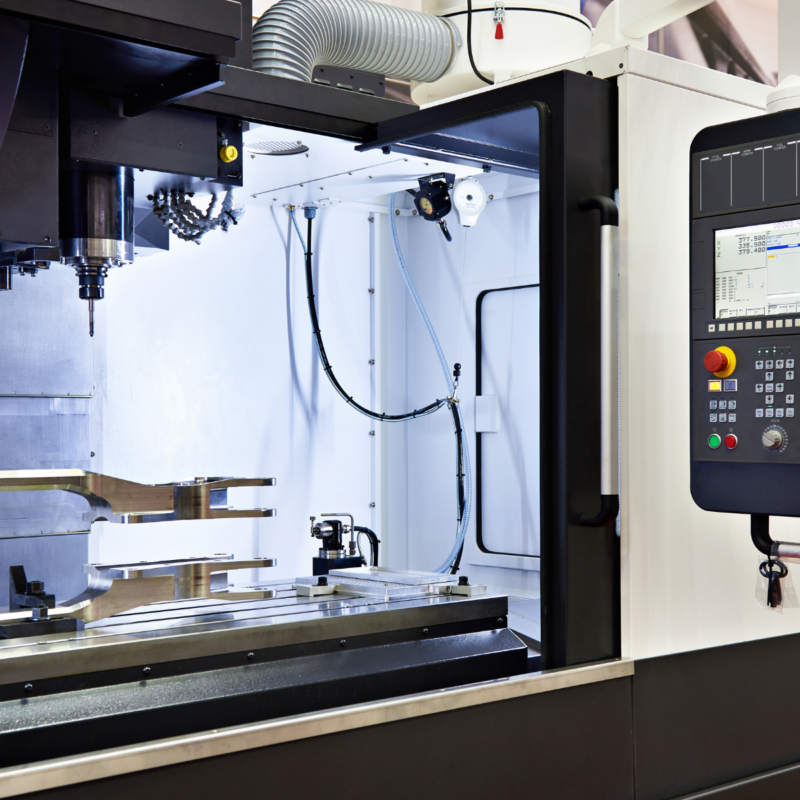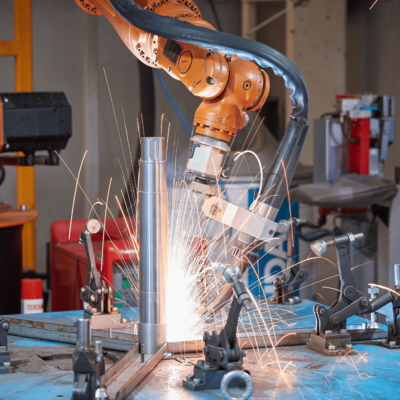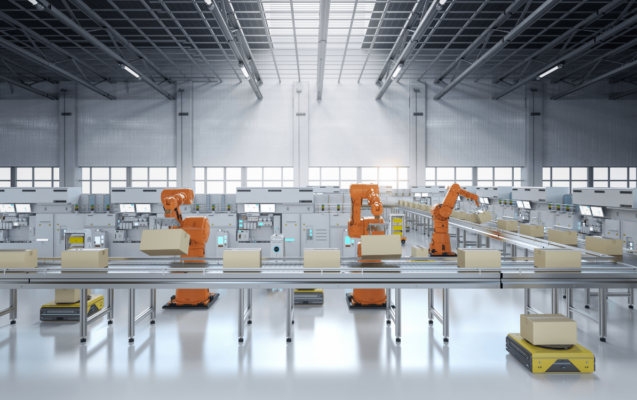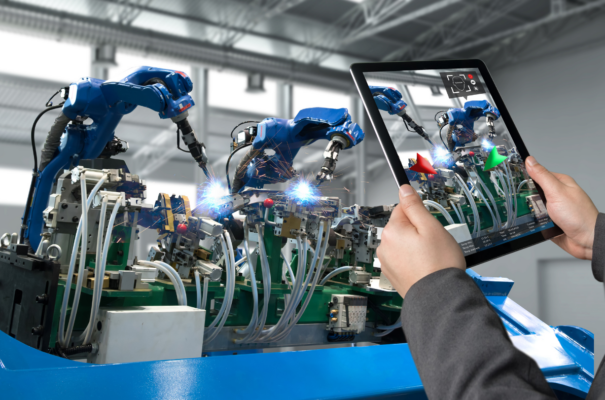Welcome to the world of CNC machining, where machines follow digital instructions to create precise and complex parts.
In this guide, we’ll explore all the basics of CNC machines!
What Does CNC Mean? And What is it?
CNC means Computerized Numerical Control.
It’s a way of making things in factories. Machines like mills, lathes, or routers are told what to do by special computer programs. These programs guide the machines on how to move, how fast, and what actions to take. This helps make things with great accuracy and complexity.
How Do CNCs Work?
CNC is all about machines working automatically with computer instructions. In the past, people used to guide tools by hand, but now CNC machines follow exact instructions given by a computer program. This program, usually written in a language called G-code, tells the machine what steps to take and the rules to follow for each task.
Components of a CNC Machine:
In CNC machining, there are important parts to understand:
1. Starting the Process:
We begin with a computer program that holds all the instructions for making things.
2. Talking to the Machine:
There’s a language called G-code that tells the machine what to do – move, go fast or slow, or change tools. M-code helps with other tasks like controlling coolant or spindle speed.
3. The Machine’s Brain:
The Machine Control Unit (MCU) is like the brain of the machine. It reads the G-code and M-code, turning them into physical actions by the machine.
4. Checking Before Making:
Before making many things, there’s a test run to make sure the computer program works correctly. This helps find and fix any mistakes before we start making the real stuff.
The Importance of CNC Machines:
CNC machining is crucial in today’s manufacturing for many reasons. Let’s look at why:
1. Precision:
CNC machines do tricky tasks very accurately. This helps make complex parts the same way every time.
2. Automation:
CNC systems work on their own. They don’t need people to do every step. This makes things faster and less likely to have mistakes.
3. Versatility:
CNC machines can do lots of different jobs. We can program them to make many kinds of things. This makes them useful for different types of manufacturing.
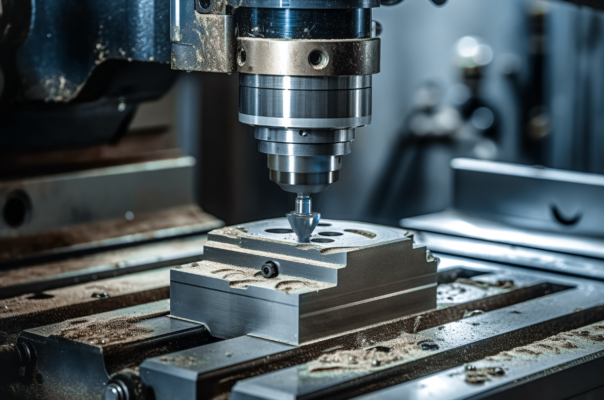
Types of CNC Machines:
There are different types of CNC machines made for various jobs. Let’s look at some of them:
1. CNC Mills:
These machines cut things with spinning tools. They can make many different shapes.
2. CNC Lathes:
Lathes spin things around while cutting tools shape them. This is good for making cylindrical parts.
3. CNC Routers:
Routers are used to cut and shape materials like wood and plastic. They’re helpful in woodworking.
4. CNC Plasma Cutters:
These machines cut through metal using a special torch. They’re great for precise metalwork.
5. CNC Electric Discharge Machines (EDM):
EDM machines use electricity to cut hard materials in intricate ways.
6. CNC Water Jet Cutters:
Water jet cutters use high-pressure water to cut through different materials, including metal and stone.
7. CNC Laser Cutters:
Laser cutters use a strong beam of light to cut through materials with great accuracy.
8. CNC Grinding Machines:
Grinding machines smooth surfaces and make things fit together perfectly.
9. CNC Press Brakes:
Press brakes bend and shape sheet metal, often used in metalworking.
10. CNC Swiss Machines:
Swiss machines make small and detailed parts, often used in making watches and medical devices.
11. CNC 3D Printers:
3D printers build things layer by layer. They’re good for making prototypes and custom parts.
12. CNC Wire EDM Machines:
Wire EDM machines use a wire to cut through materials, making intricate shapes.
6 Common Applications of CNC Machines:
CNC machines are very important in different industries. They help in making precise and important things. Let’s see where they are used:
1. Medicine:
CNC machines are used in medicine to make precise parts for medical tools and equipment. This includes things like implants and custom parts.
2. Aerospace:
In the aerospace industry, CNC machines make detailed parts for planes and spacecraft. They work on things like engine parts and structural pieces, making sure they are exact for safety.
3. Automotive:
Cars use CNC machines to make exact parts. This includes things in the engine and inside the car, making sure everything fits perfectly.
4. Electronics:
For electronic devices, CNC machines make small and precise parts. They help in making things like circuit boards and connectors.
5. Oil & Gas:
In the oil and gas industry, CNC machines make parts for machines used in exploring and getting oil. This helps in making sure everything works well in tough conditions.
6. Marine:
For ships, CNC machines are used to make different parts. This includes things like propellers and engine parts, making sure they are good for use in the sea.
CNC machines are used in many important areas. They help make things accurately and are crucial for making sure everything works well in different industries.
Benefits of CNC Systems:
CNC systems bring around a lot of benefits. Let’s explore them:
1. Saving Money:
CNC systems help cut costs by reducing labor and waste.
2. Less Waste:
They use less material, so there’s less waste, which is good for the environment.
3. Safety:
CNC machines are safer because they work automatically, reducing the chance of accidents.
4. Smart Operations:
CNC systems work smartly, giving better control and making things the same way every time.
Drawbacks of CNC Systems:
CNC Systems also bring around a few drawbacks. Let’s have a look at them:
1. Expensive to Start:
Setting up CNC systems costs a lot at first because of special equipment and software.
2. Needs Regular Care:
CNC machines need regular check-ups to work well, which can cost more money.
3. Need Trained People:
Running CNC systems needs trained people, and finding them can be hard.
The Future of CNC Machining:
CNC machining is getting popular in industries like planes, cars, and electronics because it makes things exact and consistent. However, it has challenges like high initial costs and finding skilled people. The future looks promising with efforts to make CNC more automatic and user-friendly. CNC machines are always improving and preparing for what comes next.
Conclusion:
In short, CNC machining is a crucial method used in different industries. These machines are important for creating parts in planes, cars, and electronics. Even though starting CNC can be expensive, and finding trained people is challenging, it has many benefits, like saving money and working safely.
Looking ahead, efforts are being made to make CNC more automatic and easy for everyone to use. CNC machines are always getting better, solving problems, and preparing for what’s next in manufacturing.
To learn more about CNC Machines.
Are You Looking For A Systems Integrator?
Visit Qviro